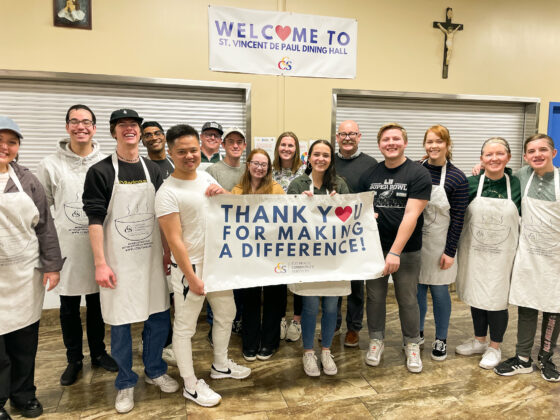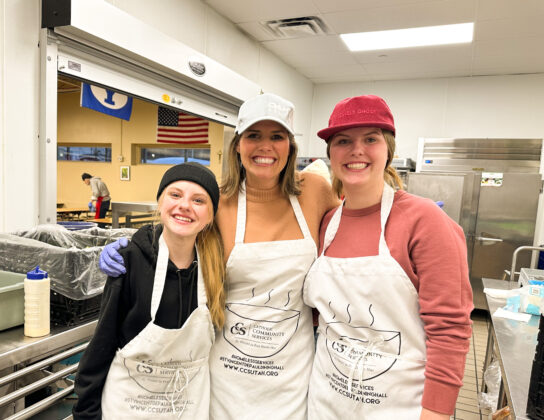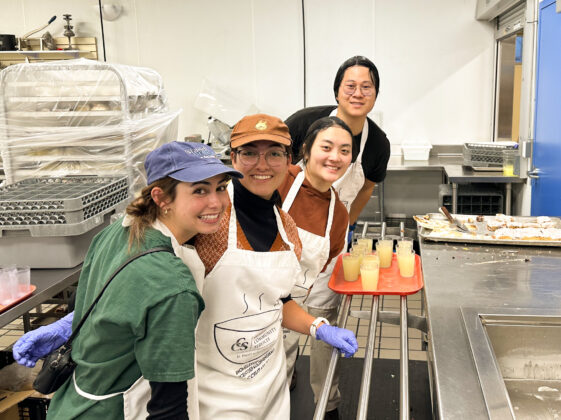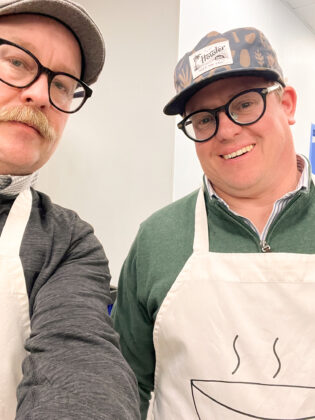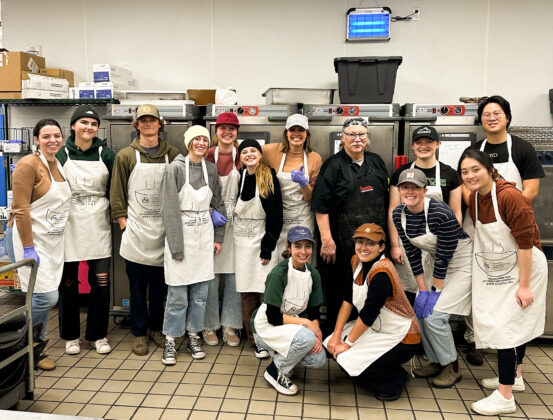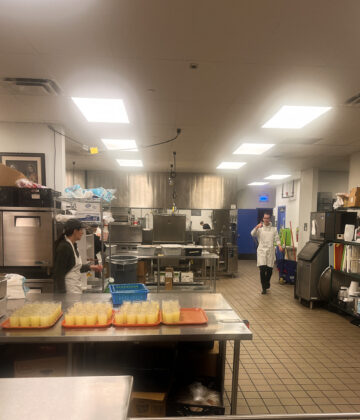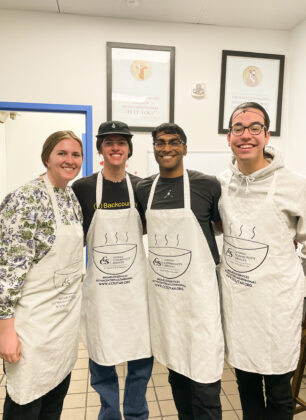The Interfaith Leadership and Ethics course taught at BYU prioritizes experiential learning through service with other faith-based organizations such as Catholic Community Services.
The course is taught by BYU religion professors Andrew Reed and Mike MacKay. The two organized the class with the intention to help students be highly engaged in the world.
Reed said unlike traditional lecture-style classes, the Interfaith Leadership and Ethics class invites students to problem-solve and collaborate, acting as the leaders behind the service opportunities and assignments that push them into their community.
The purpose of this class can be defined by the two great commandments: to love thy God and thy neighbor, according to MacKay. As students brush shoulders with those of other faiths and experience more than solely dialogue about beliefs or doctrine, Reed said a “depth of humanity” is experienced.
In a recent service opportunity, the class spent 10 days serving at a food kitchen run by Catholic Community Services. One of the students, McKay Bowman, is a BYU philosophy major and president of the Interfaith Student Association. He said he is grateful for the experience at the Catholic food kitchen and feels privileged to be “a small part of the big things they’re doing.”
Bowman shared an experience with one of the full-time workers that deepened his appreciation for the service offered by the CCS. When he asked the worker what brought him to the food kitchen, the man told him he was on the other side a few years ago, receiving a free meal.
This dining hall, run by the CCS, provides over 2,000 meals a day to people in need. Recognizing the organization’s impact and success, students enter to learn from interfaith leaders in the process of becoming interfaith leaders themselves.
“This is something (the CCS) does every single day … we’re no heroes,” Bowman said.
Although this is a course that offers leadership opportunities, MacKay emphasized the importance of entering interfaith opportunities, such as the experience with CCS, with a desire to learn and with the question, “how can you help us?”
Bowman extended an open-arms invitation to future prospective students, emphasizing that no prior experience is needed — only the intention to enter with curiosity and openness. This interfaith leadership class and clubs such as the Interfaith Student Association seek to “create a safe, compassionate environment for people of all faith traditions and belief identities in order to learn this engagement,” according to the IFSA website.
“Come as your whole self with all your ideas, and your beliefs and your passions and your excitement … and also come with a lot of room to get filled up by the ideas of other people,” Bowman said.
Bowman acknowledged that it is not easy, describing the wrestle with new ideas and the “divine discomfort” that can occur, but also affirms it is worth it for the perspective and connection gained.
In addition to their work at the Catholic food kitchen, the class participated in making hygiene kits in coordination with a pastor located in Northern Utah. Reed described how it propelled the students to take charge and get creative with their access to resources. The students started asking questions and making a plan in order to get the word out and find the needed materials for the kit.
While these type of leadership opportunities are positively impacting the local community, the professors remind their students that these skills are transferable in any type of assignment they will encounter in their futures.

